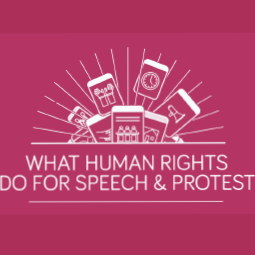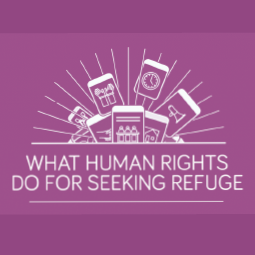
[Text on screen]: Five ways human rights laws protect free speech
Great speeches have changed our world, like Martin Luther King and Emmeline Pankhurst.
Not everyone is a fan of free speech though.
[Image of Donald Trump tweet]: “Just had a very open and successful presidential election. Now professional protesters, incited by the media, are protesting. Very unfair!”
Luckily we have human rights laws to protect free speech. Here are five ways they do it:
1. Article 10 of the European Convention on Human Rights gives us a legal right to free speech. And the Human Rights Act brought that right into our UK law. So public authorities like the police have a legal duty to protect free speech. And if our free speech is being trampled on we can get our rights enforced in court.
2. Human rights laws protect journalists from having to reveal their sources... in a landmark case a journalist’s criminal conviction for refusing to reveal his source was overturned.
3. Human rights laws protect our right to protest. In a famous case, a bus full of war protesters was illegally stopped by the police
A court said that the police broke the law.
4. We have the right to express opinions in public. And that even applies to ideas that are offensive or controversial
5. Human rights laws protect the press’s right to publish stories in the public interest. So the press can be free to investigate wrongdoing by politicians.
Free speech is the lifeblood of democracy. Human rights laws ensure that we are free to speak our minds. Speaking our minds is more important now than ever.







